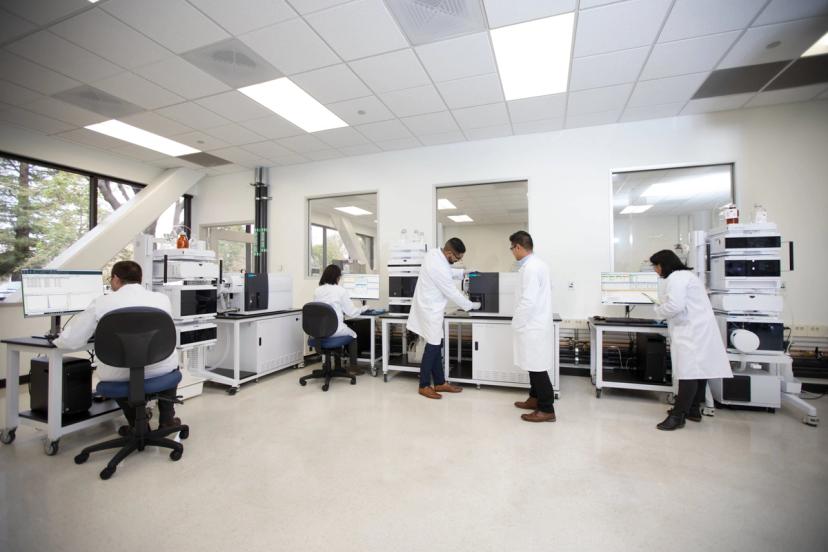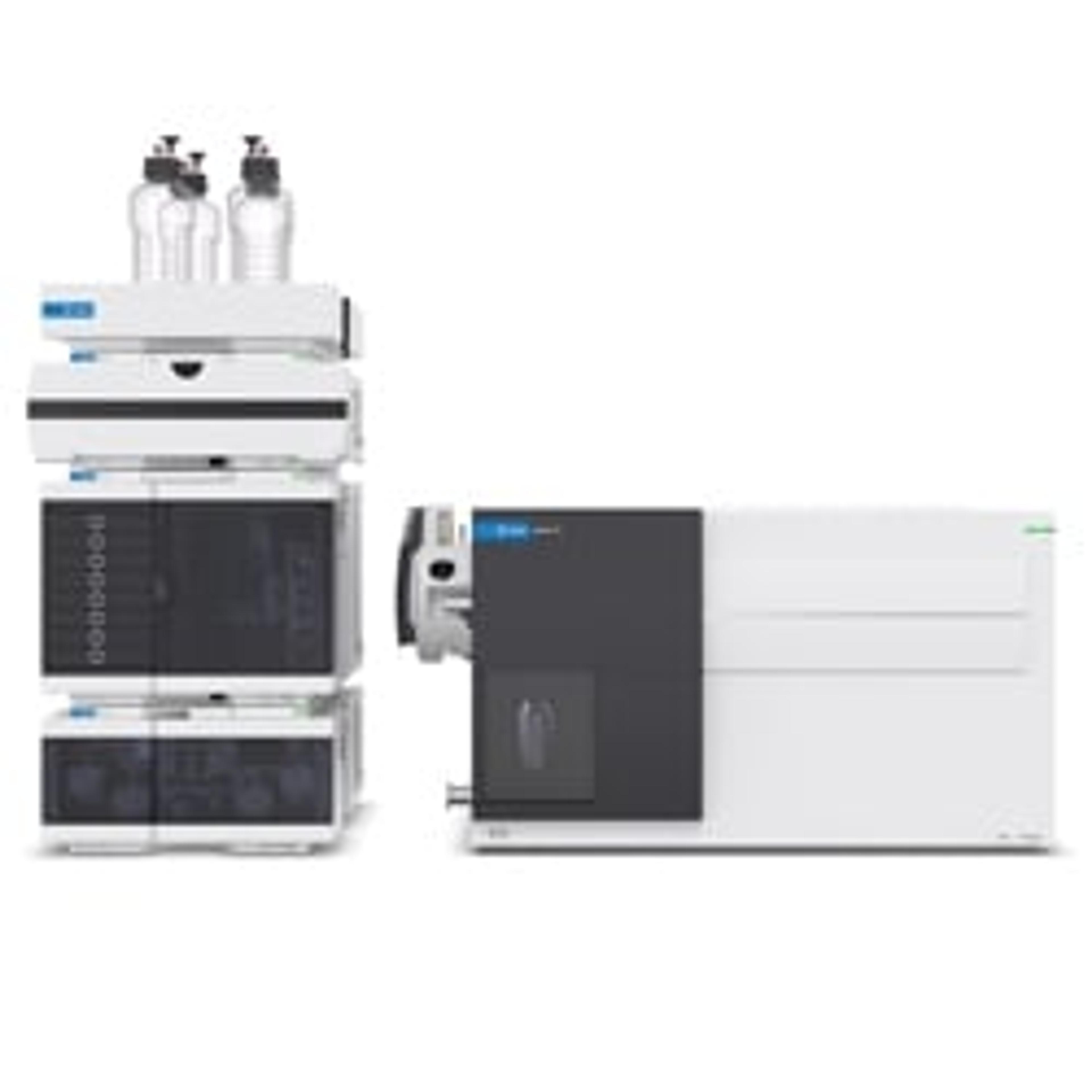Next generation mass spectrometry: The power of intelligent instruments
How instrument intelligence is making mass spectrometry more accessible
8 May 2022

With a global trend towards autonomous technologies, the field of mass spectrometry is no different. Advances in instrument intelligence, such as diagnostic and troubleshooting capabilities, provide analytical laboratories with the ability to streamline and simplify workflows, save time, improve accuracy and reproducibility, and increase instrument uptime.
In this SelectScience interview, Dr. Shane Tichy, Associate Vice President of R&D MS Quadrupole Instrumentation at Agilent Technologies, discusses the trends and challenges in instrument intelligence and how they will impact scientists working in food safety, environmental, pharma/biopharmaceutical, life sciences, clinical diagnostics, forensics and beyond.
Expertise in mass spectrometry
At Agilent Technologies, Tichy leads a talented team of chemists, scientists, project managers, electrical engineers, software programmers, and mechanical engineers working at the forefront of mass spectrometry innovation. Over the past decade, the group have developed and introduced ten novel quadrupole mass spectrometers. “I've been fortunate to work on multiple state-of-the-art projects at Agilent,” Tichy shares.
During this time, some of his favorite projects include the sensitive 6495C triple quadrupole LC/MS, the Ultivo triple quadrupole LC/MS (LC/TQ) – a compact and powerful system – and the InfinityLab LC/MSD iQ, designed for ease of use. These instruments incorporate key technologies and features advancing analytical applications. Tichy highlights, “the 6495C triple quadrupole LC/MS system is at the forefront of sensitivity, reliability, and accuracy, making it a perfect option for many applications, including peptide quant, food safety, environmental testing, clinical research, and forensics.” The Ultivo and the LC/MSD iQ meanwhile provide a compact but powerful solution for analytical labs and incorporate several innovative technologies as well as intelligent features. “They provide fit-for-purpose, straightforward, rugged LC/MS analysis you'd expect from a larger comparable system, but at a fraction of the size,” says Tichy.

Incorporating intelligent features
The team’s latest project is set to further transform the analytical field. “We've recently been working on a next-generation LC/MS triple quad that further enhances sensitivity, precision, and instrument intelligence,” Tichy shares.
The new system will incorporate programmable smart chips that enable advanced monitoring and feedback. Tichy enthuses, “we're excited to incorporate smart chips into our mass spectrometer as it affords improved accuracy, repeatability, and long-term stability. At the same time, it enables a reduction in the frequency of recalibration, a reduction in maintenance cost through self-diagnostics of faults, and the ability to store tune and calibration data, which can be evaluated during the next calibration.”
Together these intelligent features will help meet the needs of mass spectrometer users across all markets. Tichy explains, “along with the improved precision as well as sensitivity, they need to have feedback that says, ‘Hey, my instrument is up and running at the highest level. And, when the analytical performance diminishes, what's wrong with the system?’ And that's where instrument intelligence really comes into play.”
Trends in instrument intelligence
“There's been quite a buzz around instrument intelligence over the past few years,” Tichy shares. “Believe it or not, the first intelligent instrument appeared over 30 years ago.”
While expensive programmable chips initially hindered growth in the analytical instrumentation industry, there has since been a decrease in cost alongside an increase in power. Tichy explains, “what we've seen is dramatic price reductions for these devices while their power has increased, making the cost differential between intelligent and conventional devices relatively small.”
The ability to incorporate smart chips in mass spectrometry instruments provides users with a wealth of advantages, from physically smaller instrumentation and fast bi-directional digital communication, to instrument self-calibration. This will result in increased measurement accuracy under varying environmental conditions, and instrument self-diagnostics, which can indicate the system's health and alert operators to a change in the quality of the measurement and potential problems.
Making mass spectrometry more accessible
A key challenge in adopting mass spectrometry is that inexperienced users often perceive mass spectrometers as sophisticated instruments that are challenging to operate and maintain. “Some operators struggle with manually optimizing instrument tuning or source parameters to achieve the highest performance levels,” Tichy explains. “Another challenge is troubleshooting an instrument. Customers don't know where to look when the system performance declines. Is it the column? Is it a dirty source? Is there lens contamination? Maybe it relates to a mechanical or electrical assembly? For these reasons, even though mass spectrometry is the best analytical tool to solve their challenges, they are intimidated to use the system.”
Here, instrument intelligence is helping to overcome these challenges and increase the accessibility of mass spectrometry. By utilizing smart chips in Agilent Technologies’ systems, Tichy and his team have enhanced autotune and calibration algorithms so that they consistently set the optimum instrument parameters. Tracking the health of the system through early maintenance feedback minimizes downtime, while self-aware plug-and-play technology has also removed the need for the lengthy learning curve associated with transitioning to mass detection with new systems.
“Instrument intelligent makes mass spectrometry simpler and helps our customers overcome the intimidation factor. It essentially turns a highly sophisticated mass spectrometer into a mass detection device that's easy to use,” Tichy highlights.
Future trends
Looking to the future Tichy foresees instrument intelligence playing a key role in the laboratory and in future instrument development. “I'll keep this simple. I'm seeing a trend to more autonomous, sophisticated technology that makes people's work in labs easier. Mass spectrometry is no exception. We will continue to innovate to stay ahead of future trends for our customers,” Tichy concludes.

